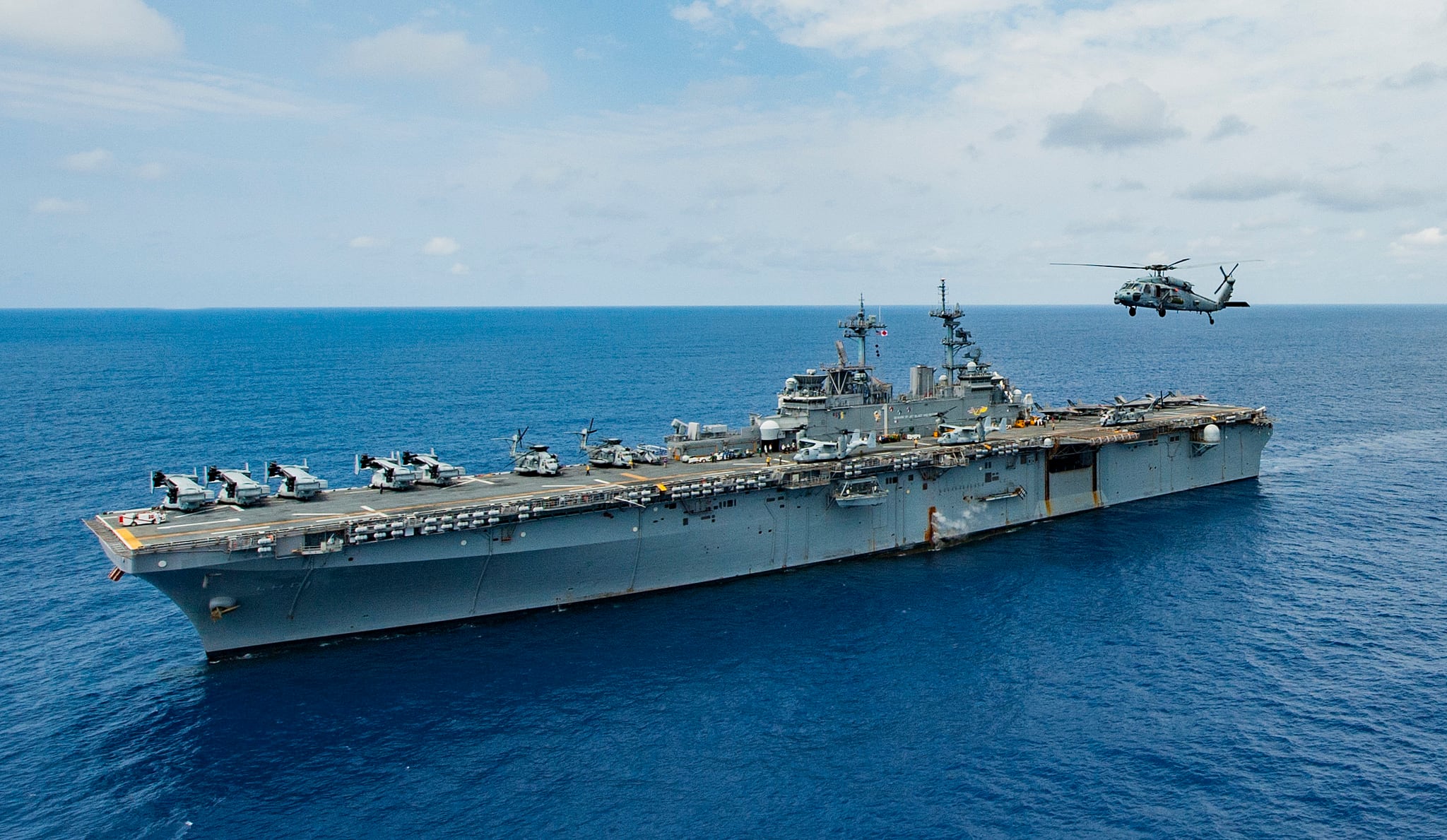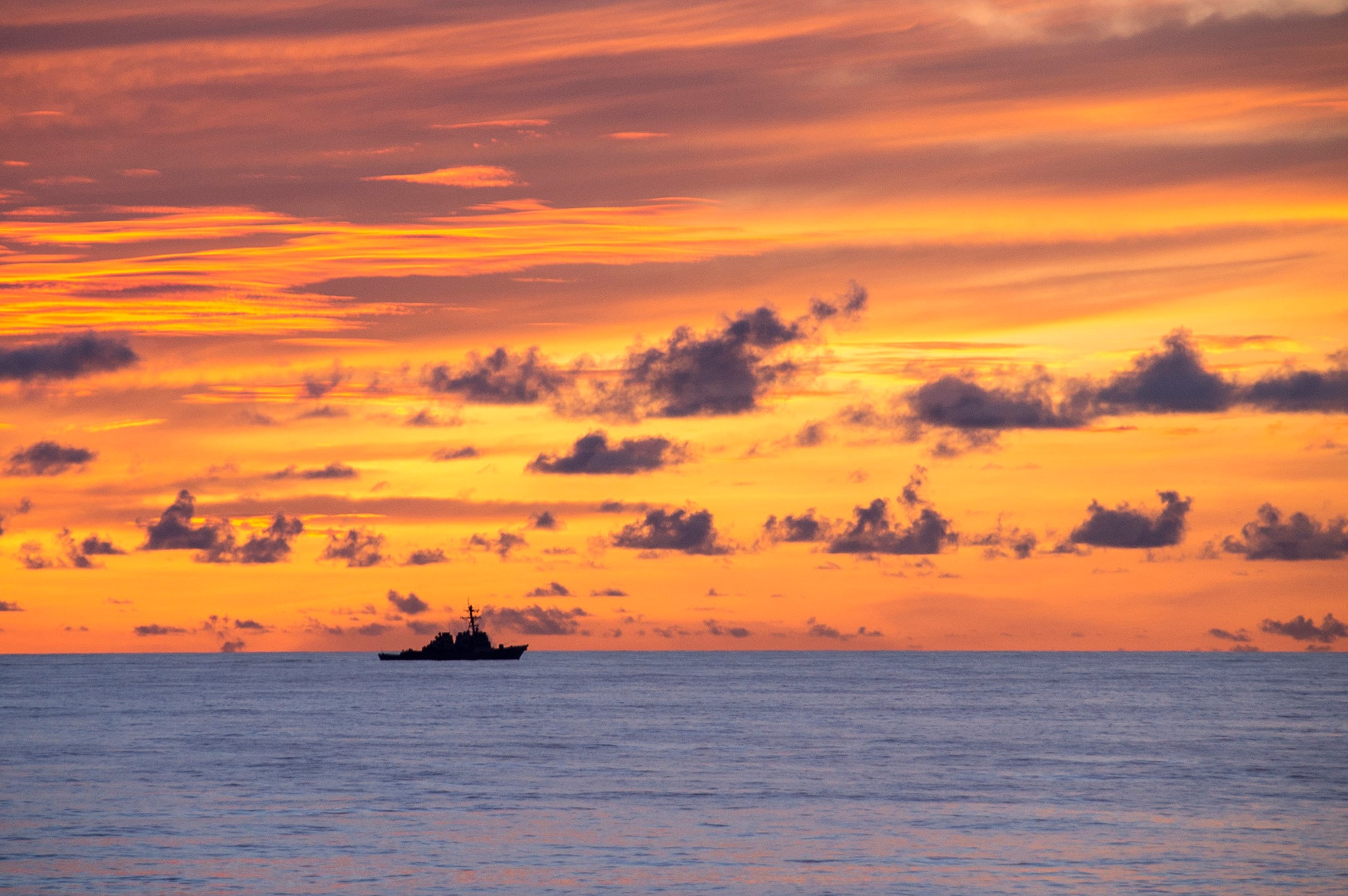BEIJING — China said Thursday that it had expressed concerns to the U.S. over the passage of a pair of Navy warships through the Taiwan Strait, days ahead of a planned meeting between President Donald Trump and his Chinese counterpart Xi Jinping.
Foreign Ministry spokesman Geng Shuang told reporters that Taiwan was the “most important and sensitive issue” in relations between the sides.
"We have expressed our concerns to the U.S.," Geng said at a daily news briefing.
RELATED

"The Taiwan issue has a bearing on China's sovereignty and territorial integrity. It is the most important and sensitive issue in China-U.S. ties," Geng said.
China's defense ministry also said it had closely followed the warships' passage.

Monday’s passage of the guided-missile destroyer Curtis Wilbur and guided-missile cruiser Antietam marked at least the third time this year that the Navy has sailed through the strait that separates Taiwan from mainland China.
The 160 kilometer (100 mile)-wide waterway is split down the middle between Taiwan and China, but there is no international law restricting civilian or military shipping from passing through it.
Tensions between the two militaries have been high over U.S. challenges to China’s claim to sovereignty over virtually the entire South China Sea. In late September, a Chinese destroyer came close to colliding with the destroyer Decatur in the South China Sea in what the U.S. Navy called an “unsafe and unprofessional maneuver.”
Despite that, contacts between the sides have endured and China gave permission last week for the aircraft carrier USS Ronald Reagan to dock in Hong Kong.
Trump and Xi are due to meet in Argentina on Saturday amid tensions over Taiwan, the South China Sea and an increasingly bitter trade war between the sides.
China regards Taiwan as its own territory to be brought under its control by force if necessary. The sides split amid civil war in 1949 and most Taiwanese favor retaining their current de-facto status of political independence while maintaining close economic ties with China.





